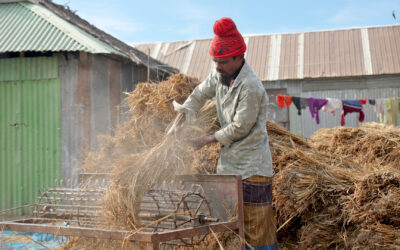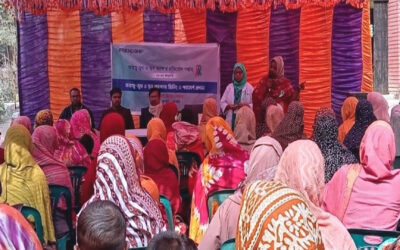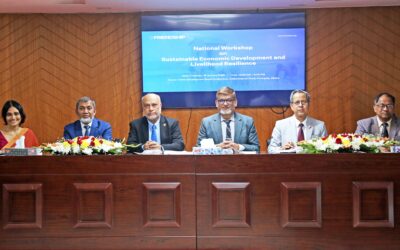Anecdotes of young children awaiting life-changing surgery at the Friendship Hospital Shyamnagar
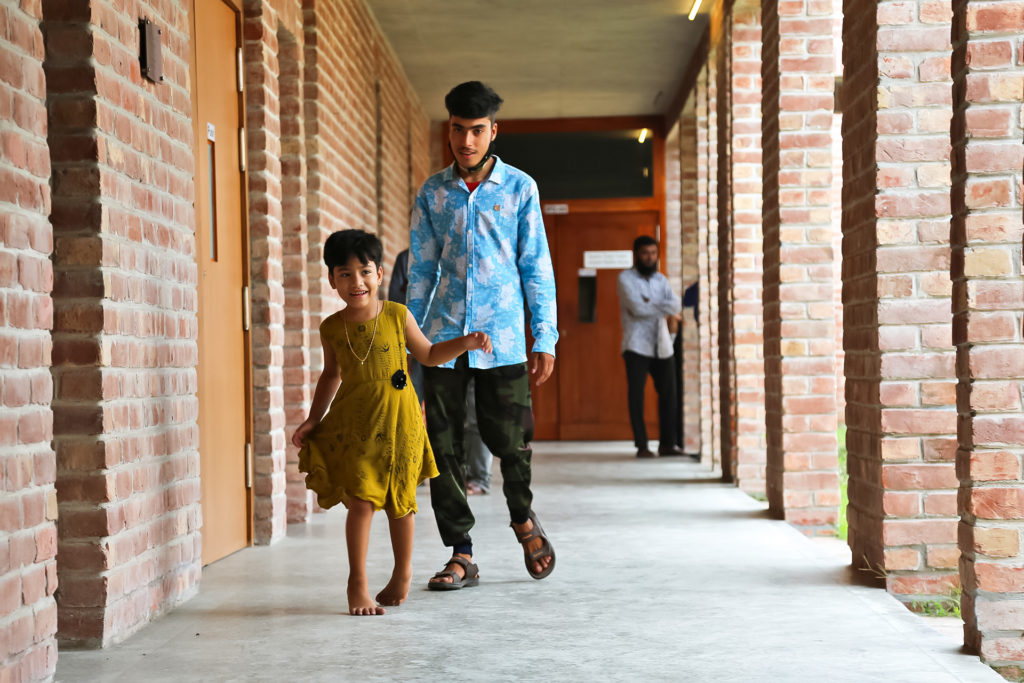
by TAHMEED CHAUDHURY
April 11, 2022
Silent prayers, sudden wails, humble hopes of a better tomorrow—the atmosphere inside the camp ward is chaotic one moment, and absolutely hushed the next.
From March 21 to 27, an orthopaedic surgical camp took place at Friendship Hospital Shyamnagar (FHS), as part of which, doctors tended to more than a hundred patients, conducting 25 surgeries.
Most of these patients were children.
After primary treatment, those requiring surgery were kept in the camp ward, a wide hallway consisting of two rows of beds, occupied by patients and guardians alike. Each bed is a story of struggle and of hope, with guardians unified by a common goal: to see their children stand on their own two feet—in every sense.
Maharima
Bagachra, Jessore
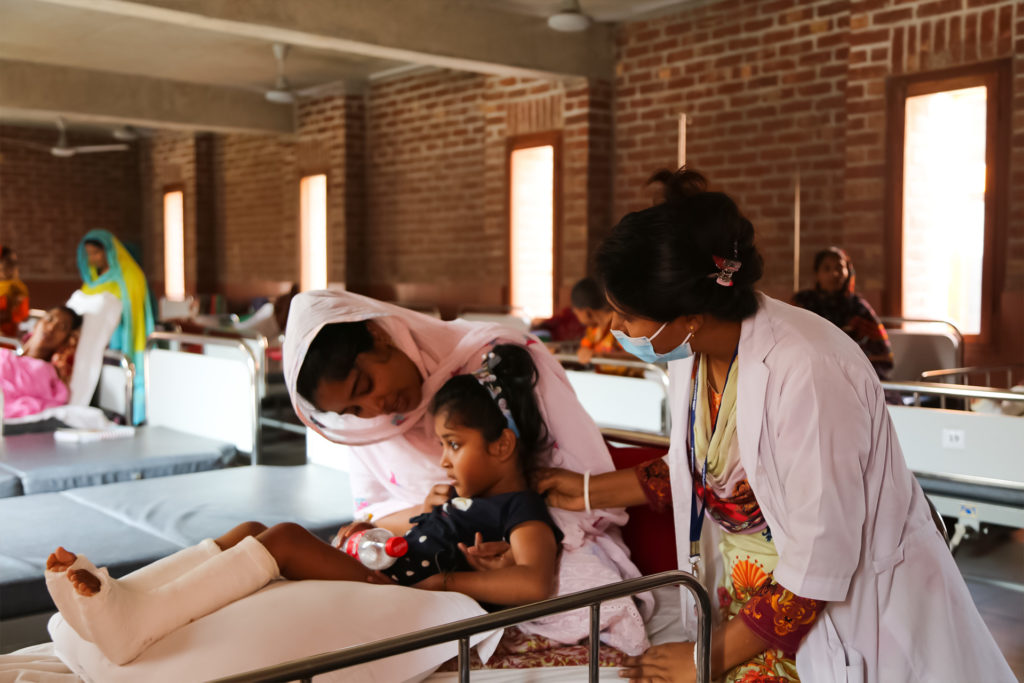
Maharima, 4, rests her head on her mother’s lap with her feet elevated on a pillow. She was born only six months after conception, the effects of premature birth still apparent in her slightly crossed eyes and slurred speech. But the main reason that brings her here is a condition familiar to many other children in the ward: clubfoot.
With both her heels twisted, Maharima is unable to walk properly, let alone play like other children her age. “She is yet to go to school,” says her mother. Born with the condition, doctors initially predicted Maharima’s heels would become normal as she grew, but that has not been the case.
“We have consulted a number of doctors, and we routinely take her for physiotherapy, yet to no avail,” her mother continues, hopeful that the surgery would provide her family with the relief they had been seeking for years.
Lamia Sultana
Shibchandrapur, Shyamnagar
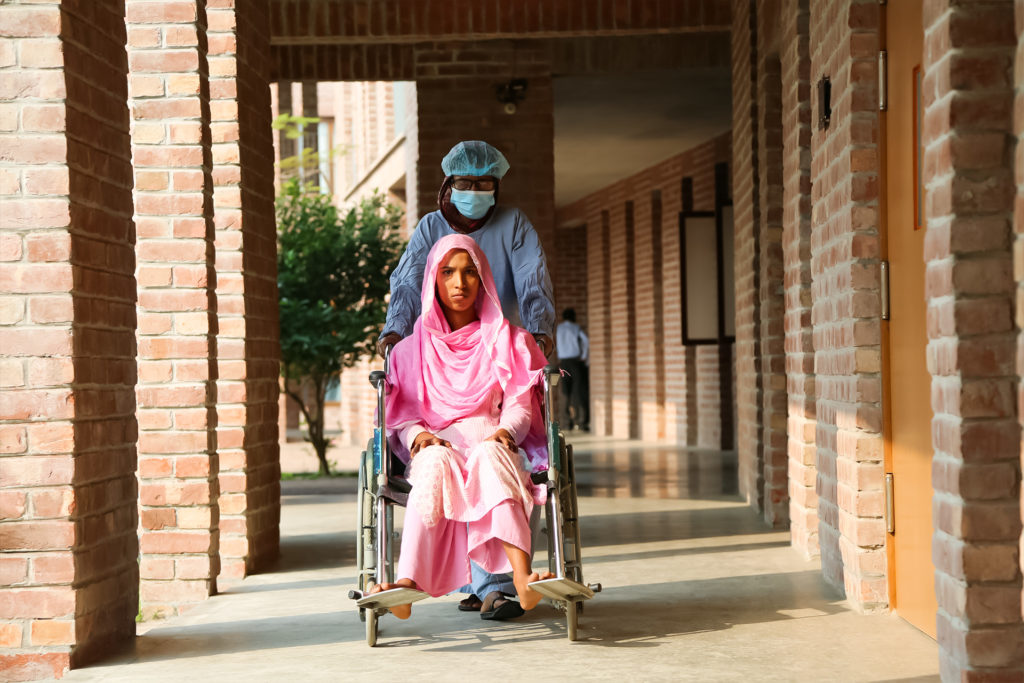
Two beds down from Maharima, a teen woman lies surrounded by her siblings, who playfully hop from one bed to the next to amuse themselves. An Intermediate level student, 19-year-old Lamia has been suffering from Achilles tendinopathy, a congenital disability due to which walking—even standing—can be a challenge.
“Doctors told my parents that as I got older, this would be healed. However, that never happened. Physiotherapy initially offered a ray of hope, but the problem persists,” says Lamia.
“I often lose balance while walking; even sitting can be of great discomfort. As I grew older, I started feeling self-conscious about my problem in front of my peers. I feared being bullied and felt embarrassed.”
With her bilateral Achilles tenotomy operation only hours away, Lamia pins her hopes of rehabilitation on the surgery. She wants to play with her younger sister, cook and take care of her family without any trouble.
Mehedi Hassan
Bitkhali, Shyamnagar
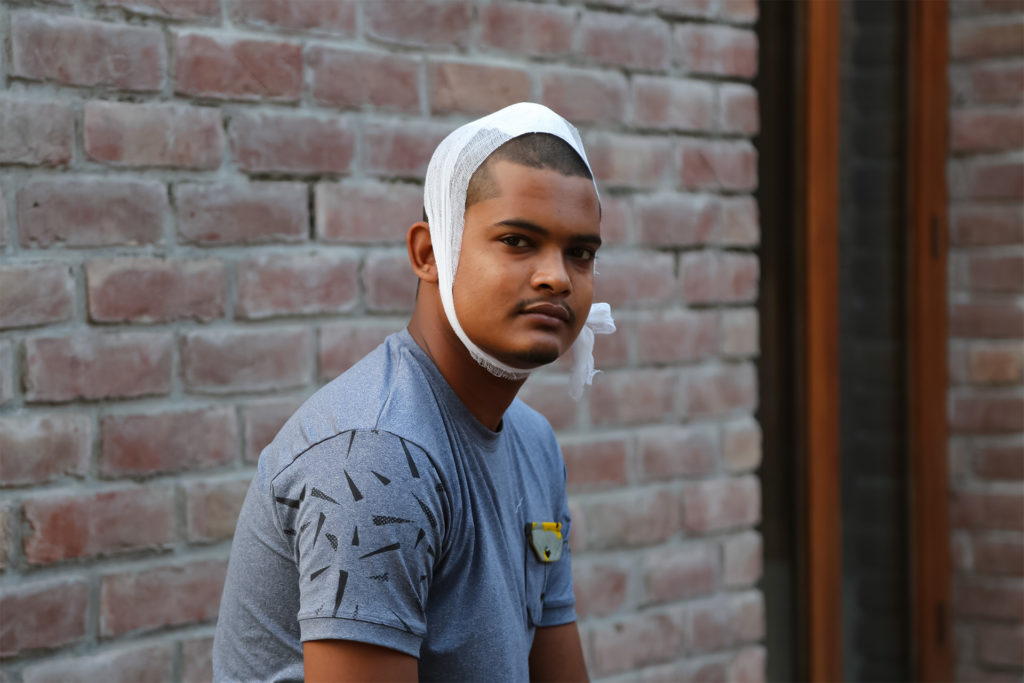
Among all the boisterous children in the camp ward, Mehedi Hassan, 22, looks out of place. Seven years ago, he started experiencing frequent headaches and upon investigation was discovered to have grown a tumour in his brain. “I took homoeopathy treatment for a long time. However, when it was not working, I went to India to seek treatment,” says Mehedi.
High expenses and incoming higher secondary examinations meant Mehedi refrained from undergoing surgery and as a result, his existing tumour grew bigger while another small tumour appeared. “This is when I knew I had to get a surgery done.”
He decided that the Friendship Hospital Shyamnagar is the place to go to, considering its proximity to his village and the affordable rates of surgery and treatment. He is now awaiting surgery on the larger of his tumours. “I really hope this turns out well and I am able to move on.”
Sadika
Srikala, Kaliganj, Satkhira
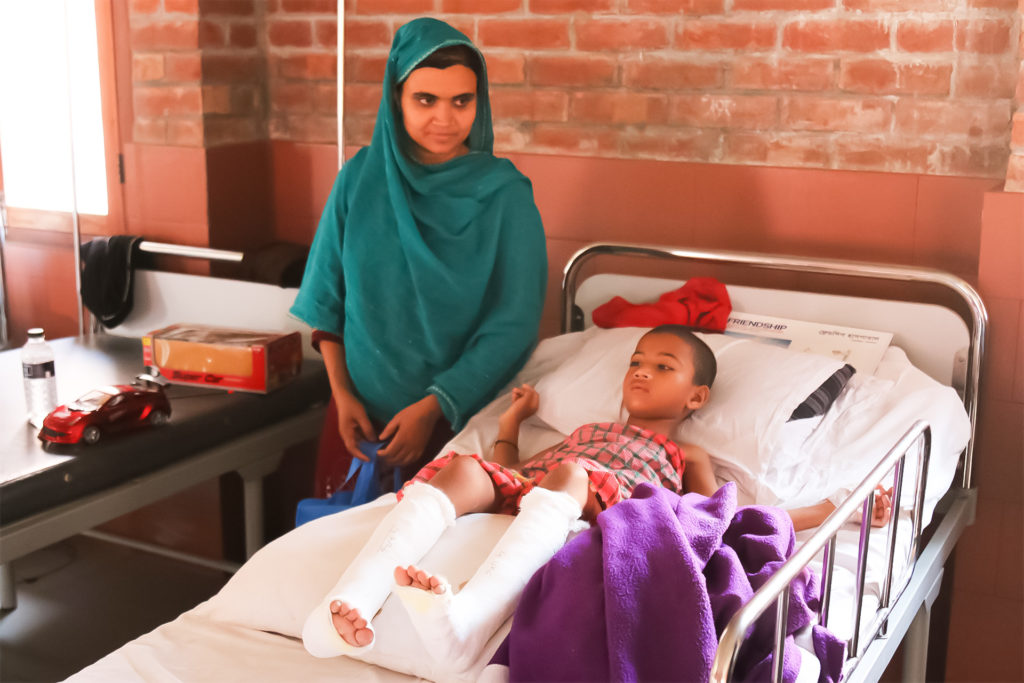
Further down the aisle, sounds of faint sobs reverberate across the ward. 8-year-old Sadika has had enough of hospitals and doctors, and wants to go home. “She was born cross-legged, is unable to walk without support and can only play while sitting,” says her mother, clearly exhausted by the frequent trips to hospitals herself.
Sadika’s condition renders her unable to go about the everyday activities of a child. She needs her mother’s assistance in going to school. Luckily, her mother is a teacher at the very school she is a student of, but she worries about the future.
“As orthopaedic treatment is hard to get here, we have had to make multiple visits to India, incurring 1, 50,000 to 2, 00,000 BDT in each visit.”
Her family has not lost hope yet. Sadika is on the verge of what could turn out to be a life-changing surgery. “I hope she will be able to walk normally, play with her peers and be independent. I wish that she is able to fulfil her dream when she grows up, which is to become a teacher like her mommy.”
Hussain
Hildiya Kola, Satkhira
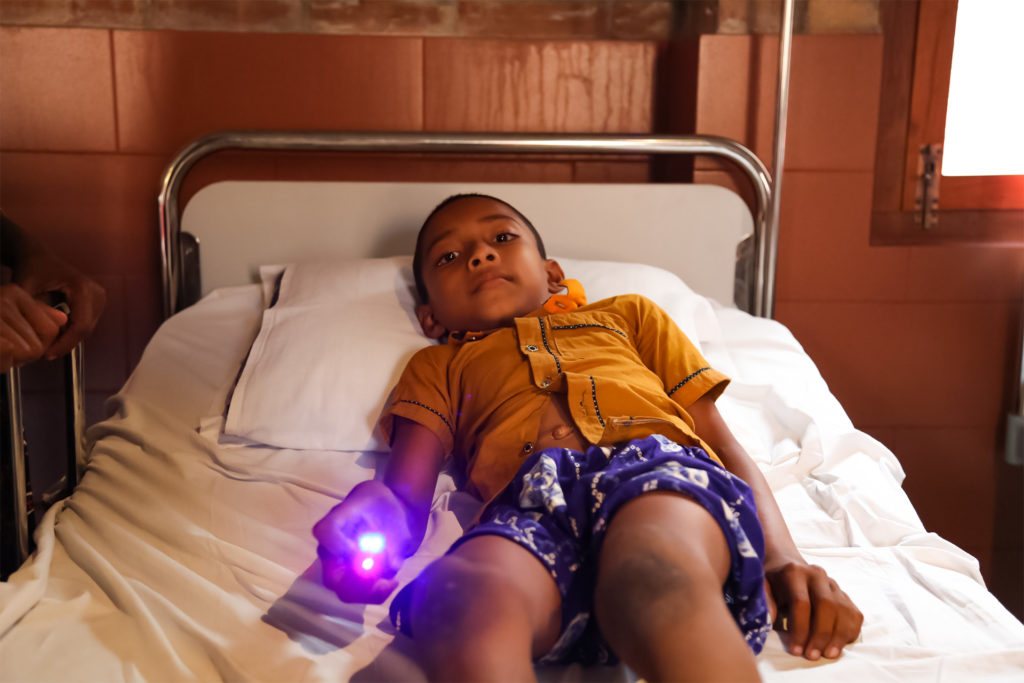
From the bed adjacent to Sadika’s, a blinding light pops out of nowhere, distracting anyone who crosses its path. Clad in a bright yellow shirt and flower printed blue shorts, Hussain is rather jovial compared to his fellow patients. He sticks out his toy laser and playfully aims it at each passer-by.
Hussain has had hip dysplasia since childhood, and it affects his ability to stand, walk and play. “He can only stand while holding onto something. He needs his father or me to take him to school. He feels embarrassed around his peers,” says Hussain’s mother.
As he awaits his surgery, Hussain holds onto his faint hope of being able to play cricket with his friends. “He has big dreams. He wants to go abroad, study and earn enough to take us out of poverty. I wish his surgery makes him better and he is able to fulfil his aspirations.”

